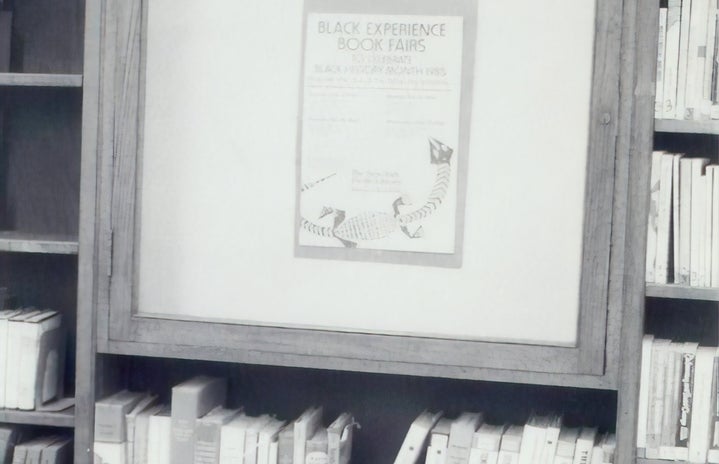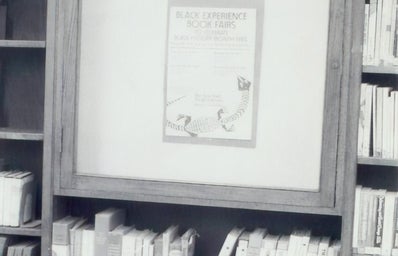A deep dive into the meaning of the Black archive and its significance in today’s world.
“My family was poor, poor people,” said my great-great Uncle Dee Dee as I listened attentively on my grandparents’ backyard patio. “They were a nice, loving family. A lot of kids,” he added with a chuckle.
“And you?” I said, looking to my great-great aunt Clara for an answer.
“Well, my family is mixed up. Which one you want, my mother or my daddy?” she replied.
“Doesn’t matter,” I responded.
Aunt Clara then went on to explain how her father was the son of a plantation owner, where he and his ten siblings worked until they all migrated. Her father and his siblings migrated to Butler, Georgia, and the migration continued until they all went one by one to Boston, Massachusetts. Aunt Clara made sure to remember to name each and every one.
This was the beginning of an almost 45-minute interview with my elders I recorded on April 10, 2014. While both have since passed, their voices live on. Their stories live with me, for as long as my voice notes in my iPhone remain untouched. They are my personal piece of the greater collective known as the Black archive.
Defining The Black Archive
The Black archive, in its simplest form, is keeping records of anything that came from or created by Black people. It exists in the physical, from photos, letters, event flyers, and news articles, to the things that only live in memory and are kept alive by storytellers, or griots, who maintain oral history. While there are formal and informal ways of archival, as some work is only limited to academia, the Black archive is meant to connect the past, present, and future.
One of the largest hubs for discovering additions to the Black archive is found in none other than Atlanta, Georgia. On Auburn Avenue, you can find multiple generations’ worth of Black history and material. It is home to many of Atlanta’s cultural landmarks, including the oldest Black history museum in Atlanta, the African-American Panoramic Experience, also known as the APEX Museum.
“If we don’t keep it in some place as an archival, we could lose it,” Dan Moore Jr., director of the APEX museum shared, referring to the artifacts and material housed in the APEX museum. “We could lose its essence, we could lose its history, and we could lose its story.”
Dan Moore Jr. is no stranger to upholding the Black archive. As the son of the museum’s founder, Dan Moore Sr., Moore has dedicated his life’s work to continuing the legacy and displaying the rich history of Black livelihood.
“I think it’s one of the things that people don’t realize Black people have been doing for so long,” said JoyEllen Williams, the Special Collections Curator for the Department of Museums, Archives and Rare Books at Kennesaw State University.
Williams, an archivist, notes that while the Black archive may not have been recognized institutionally, it does not erase the fact that Black people have preserved their own stories for a long time.
“Whether it’s through recipes that have been passed down or that story that a grandparent told you and you never forgot… It’s been going on for a long time. Preserving the Black archive means reaching out to those areas of the community where their story hasn’t been told.”
With these definitions in mind, it is shown that the work of the past and the history that comes with it can never truly be lost. All that it takes is dedication to discovering and thinking outside the box of what can be added to the Black archive. It is more than speeches from civil rights activists and marches caught on film. It is also the stories of the witnesses to such events.
Black Archival Today
“For me, [the Black archive] means the collecting of anything related to Blackness,” For Keeps Bookstore owner Rosa Duffy said as we sat on the store’s green velvet couch. “I don’t necessarily follow all the rules that come with being a Black archive. It’s just the collection of Black material.”
In the For Keeps bookstore, Rosa Duffy has amassed hundreds of materials from prominent Black writers, artists, and activists. Duffy, an artist herself, expressed that the For Keeps store operates as a permanent art installation. Rather than customers coming in to purchase, they’re encouraged to stay a while, take their time, and read what interests them.
“I just wanted to have as much Black material in a room that people could access without having to have some kind of prerequisite,” Duffy shared on her reasoning for opening For Keeps. “You don’t have to get into school, you don’t have to be a part of this library, you don’t have to sign up, etcetera. Obviously, there’s stuff for sale, but the things that I really treasure and cherish are the things that exist on the table that you might not be able to see outside of the space unless you know exactly what you’re looking for. That’s something that I want to live in perpetuity.”
Duffy stressed the importance of holding space for community through her store, her artwork, and day to day life. Within these spaces, the Black archive expands as more work is discovered and more people come and go to experience it.
“I love the fact that [For Keeps] is located on Auburn Avenue,” Duffy said. “I was born a mile away at Crawford Long (now Emory University Hospital Midtown), my parents go to church around the corner. The location was already super important to me, as well as the fact that we’re in Atlanta, which is a cultural oasis.”
Duffy’s business neighbors managed to stop by during the visit to the bookstore, as well as a music artist shooting a video. Duffy’s store has been encountered by friends, family, and has recently been named one of Stacey Abrams’ favorite bookstores.
“Everything comes from the understanding that I am a Black woman, Duffy shared. “The collection of this stuff directly affects the things that I make outside of this space. It’s really influenced everything else that I do.”
Duffy’s work outside of For Keeps includes creating art, which was recently on display in collaboration with artist and partner Y. Malik Jalal. Their collection, “untangling a little word,” was on display for a few weeks at the Swan Coach House’s art gallery in Buckhead, Georgia.
Y. Malik Jalal, a blacksmith and visual artist, also had much to say about the importance of living archives, noting For Keeps as a perfect example.
“I think there are archives of Black art and Black literature, but a lot of times they aren’t Black archives. They’re crypts,” Jalal shared. “All of my notion of archives are spending time at For Keeps Books.”
Jalal also shared how he uses archival work in his own way, using his metalwork as art to contain messages of Black life.
“There’s continued concepts of trying to preserve family or community history… I think of it naturally, it’s not as direct for me.”
The mediums that Jalal blended were images of ordinary Black families, specifically during important times in life. His artwork includes abstract frames made of iron and metal surrounding photos of Black people in their homes on Halloween, graduation day, and even at funerals. These images within themselves uphold the Black archive in a way beyond the written or spoken word. This aspect of the Black archive adds a visible face to a story.
The Future of the Black Archive
There is a growing addition to what is maintained in the Black archive, as well as how it can be made more accessible to the everyday person. The question remains of what can be done to maintain the Black archive.
“You’re supposed to figure out what liberation means to you individually and not feel like you’re marginalized into this little hole where you must follow a direction as a Black person,” said Rosa Duffy.
“There’s this dilemma of whether or not it’s productive to produce work that either references or reproduces images, whether they’re violent or not, of Black people,” Y. Malik Jalal shared. “We, as people, have always been here to be consumed and to serve, and so, in this kind of setting, it’s no different.”
“Record your elders,” Dan Moore Jr. shared. “Don’t sell Big Momma’s house. Keep your heritage within your families. Tell your stories and continue to pass them down.”


